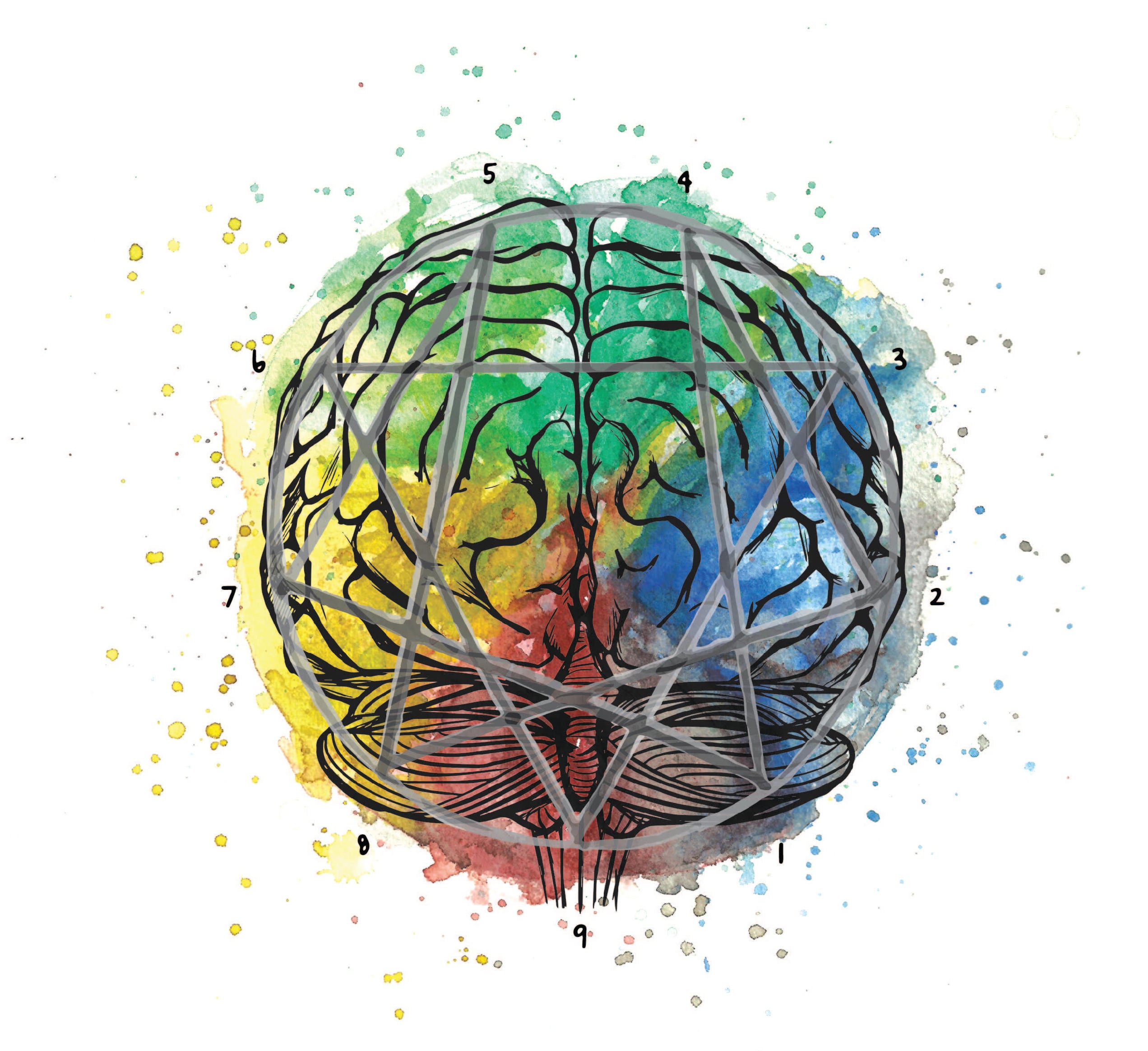
Enneagram Part One: Body Center: Weekly Summary
Enneagram Part One: Body Center
Sunday, February 23–Friday, February 28, 2020
The Enneagram’s purpose is to help us uncover the traps that keep us from living fully and freely as our True Self so that we will use our unique, authentic gifts for the good of others and the world. (Sunday)
The Intelligence Centers . . . include the Body (instinctive or gut) Center, the Heart (feeling or emotion) Center, and the Head (mind, thinking, or rational) Center. (Monday)
The Body, Belly, or Gut Center] is teaching us what it means to actually live in the here and now, to feel our existence, and to operate from that, which gives us a sense of confidence, fullness, aliveness, being. —Russ Hudson (Tuesday)
[Eights] are intimidating and they know it, but it surprises even them because inside they know they are using their strength to protect the vulnerable child within them who never seemed safe enough to grow up. —Christopher Heuertz (Wednesday)
[As Nines] learn to surrender to the action of Holy Love, we reconnect with the ocean of Being and realize that at our core, we are this Love. —Don Richard Riso and Russ Hudson (Thursday)
The special virtue, or fruit of the spirit, that marks mature persons of any type is always the reverse of the root sin or passion. The fruit of the spirit of the One is cheerful tranquility or serenity. (Friday)
Practice: Values
One of our recent Living School students, Dr. Jerome Lubbe, is a functional neurologist and co-founder of Thrive NeuroTheology. He has developed a science-based method to understand the Enneagram which he explores in his book Whole-Identity: A Brain-Based Enneagram Model for (W)holistic Human Thriving. For the next couple Saturdays, we’ll share some ideas and practices from Dr. Lubbe’s book. While I believe it can be helpful to recognize the habitual tendencies within ourselves associated with a primary Enneagram number, Lubbe reminds us that we’re complex and multi-faceted beings:

You are not a personality. You are not even multiple personalities. You have an identity—and what creates and characterizes your identity can be charted by the nine numbers of the Enneagram. The anatomy of the brain reflects this: we are not left-brained or right-brained, we are whole brained. The same is true for the Enneagram. To put it more plainly, you are not a personality type or number on the Enneagram. You are a whole person who has a whole identity—you are all nine numbers. . . . Tools like the Enneagram are meant for expanding awareness of the whole. . . .
When you shift the Enneagram Framework from being a number to having efficiencies in all nine numbers, the Enneagram language shifts with it. It becomes about nature and values instead of type and reductive behaviors. For example, number Seven, traditionally associated with the title of “Enthusiast,” is instead represented by the innate human capacity for “Enthusiasm” as well as the value of “Experiences.”
“I am an enthusiast” becomes “I value experiences” which allows more room for nuance, invites growth and begs the question, “. . . and what else do I value?”. . . There is no human who is defined by a single number. [1]
If you have resisted being “pinned down” to any one Enneagram number, perhaps Lubbe’s approach will help you see all of these qualities within yourself. Take a few minutes to read the statements below aloud slowly, pausing for reflection after each one. Notice any sensations in your body. Observe the difference between the impact of “I am” statements versus “I value.” After reading all nine, where do you feel the most energy and resonance? What values are especially meaningful to you? What values do you want to spend more time cultivating?
Eight: I am a Challenger = I value Autonomy
Nine: I am a Peacemaker = I value Serenity
One: I am a Reformer = I value Justice
Two: I am a Helper = I value Appreciation
Three: I am an Achiever = I value Authenticity
Four: I am an Individualist = I value Creativity
Five: I am an Investigator = I value Clarity
Six: I am a Loyalist = I value Guarantees
Seven: I am an Enthusiast = I value Experiences [2]
References:
[1] Jerome D. Lubbe, Whole-Identity: A Brain-Based Enneagram Model for (W)holistic Human Thriving (Thrive Neuro: 2019), 4, 23, 32. See also https://www.wholeidentity.com. Artwork by Aimee Strickland; used with permission.
[2] Ibid., 32. Dr. Lubbe’s upcoming book The Brain-Based Enneagram: You are not A number (vol. 1) will share his latest work on whole-brained interpretation of the Enneagram.
For Further Study:
Chris Heuertz, Enneagram Mapmakers: Exploring the Interior Landscapes of the Ego (Center for Action and Contemplation: 2020), podcast—coming March 24, 2020!
Christopher L. Heuertz, The Sacred Enneagram: Finding Your Unique Path to Spiritual Growth (Zondervan: 2017)
Richard Rohr and Russ Hudson, The Enneagram as a Tool for Your Spiritual Journey (Center for Action and Contemplation: 2009), CD, DVD, MP3 download
Don Richard Riso and Russ Hudson, The Wisdom of the Enneagram: The Complete Guide to Psychological and Spiritual Growth for the Nine Personality Types (Bantam Books: 1999)
Richard Rohr and Andreas Ebert, The Enneagram: A Christian Perspective (The Crossroad Publishing Company: 2001, 2013)

